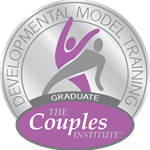Does your family include at least one person who shows traits of Autism, Anxiety and/or ADHD? Being differently wired in a world for typically wired people is likely a challenge for them and a dilemma for you, often resulting in misunderstanding and frustration. For most of us, we didn’t get adequate support in navigating differences, instead we may have learned to minimize or stamp them out in order to feel safe or get space. This takes down conflict fast – but is it getting you where you’d like to be relationally?
When we see our partner or child’s fear and anger (fanger), there can be a sense of wanting to help them through distraction or reassurance. Paradoxically this can work against us, making fanger grow and hang out even longer. Additionally, as a coach who works with ADHD and Anxiety, I can tell you that working only with the person affected seldom supports lasting change.
Getting others on the team for improvement often makes a huge difference. Why? Someone who is regulated and modeling the skills in a moment of intensity creates the conditions needed to get back on track (co-regulation). Once regulated, connection and learning is possible. Modeling on the outside, grows what’s not fully developed on the inside yet.
But, wait, am I asking you to put up with bad behavior and be mistreated in the process? Heck no… just wanting to teach you how to work with the nervous system -so your sage wisdom and boundaries aren’t wasted on someone who is black-out emotional. There’s plenty of time to help them self-reflect, perspective take and practice future actions that balance impulse/emotion (fast thinking) with flexibility/forecasting (slow thinking).
This is, of course, easier said than done and takes practice over time. If you’d like to experiment with this and other ways of supporting yourself and your loved one toward better relational health, please give me a call. By the way, it’s totally normal if a part of you is worn out and in need of your own support for the effects of living with intensity. It’s not easy, you’re not alone and getting meaningful support that offers behavioral change is often sufficient to improve relational health.



